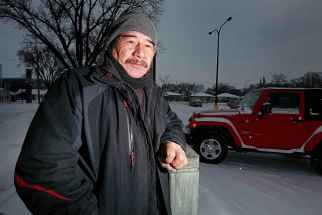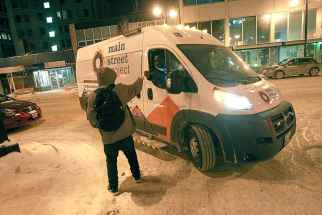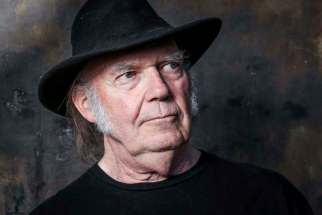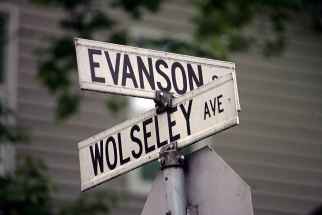Inside Neil Young’s treasure chest Five things not nearly enough to adequately describe Canadian musician's body of work
Read this article for free:
or
Already have an account? Log in here »
To continue reading, please subscribe:
Monthly Digital Subscription
$0 for the first 4 weeks*
- Enjoy unlimited reading on winnipegfreepress.com
- Read the E-Edition, our digital replica newspaper
- Access News Break, our award-winning app
- Play interactive puzzles
*No charge for 4 weeks then price increases to the regular rate of $19.00 plus GST every four weeks. Offer available to new and qualified returning subscribers only. Cancel any time.
Monthly Digital Subscription
$4.75/week*
- Enjoy unlimited reading on winnipegfreepress.com
- Read the E-Edition, our digital replica newspaper
- Access News Break, our award-winning app
- Play interactive puzzles
*Billed as $19 plus GST every four weeks. Cancel any time.
To continue reading, please subscribe:
Add Free Press access to your Brandon Sun subscription for only an additional
$1 for the first 4 weeks*
*Your next subscription payment will increase by $1.00 and you will be charged $16.99 plus GST for four weeks. After four weeks, your payment will increase to $23.99 plus GST every four weeks.
Read unlimited articles for free today:
or
Already have an account? Log in here »
Hey there, time traveller!
This article was published 01/02/2019 (2506 days ago), so information in it may no longer be current.
Sunday, Feb. 3 will be Super Sunday in Winnipeg, and it won’t be because of some forgettable four-down football game being played between TV commercials in the States somewhere.
Concert preview
Neil Young and Crazy Horse
With William Prince
Sunday, Feb. 3, 7:30 p.m.
Burton Cummings Theatre
Sold out
Monday, Feb. 4, 7:30 p.m.
Centennial Concert Hall
Tickets $149-$249 at centennialconcerthall.com
Neil Young is rock ’n’ roll royalty, especially in Winnipeg, where he’s arguably the city’s most famous celebrity. It’s almost unnecessary to mention Young’s ties to Kelvin High School, the Crescentwood and Earl Grey community centres where he played with the Squires and the Crescentwood house he lived in in the 1960s that still attracts curious onlookers including Young’s fans and even Bob Dylan all these years later.
So, when Young decides to pay a two-night visit with Crazy Horse starting on Sunday night at the Burton Cummings Theatre, there will be plenty of excited ticketholders singing Come on Baby, Let’s Go Downtown.
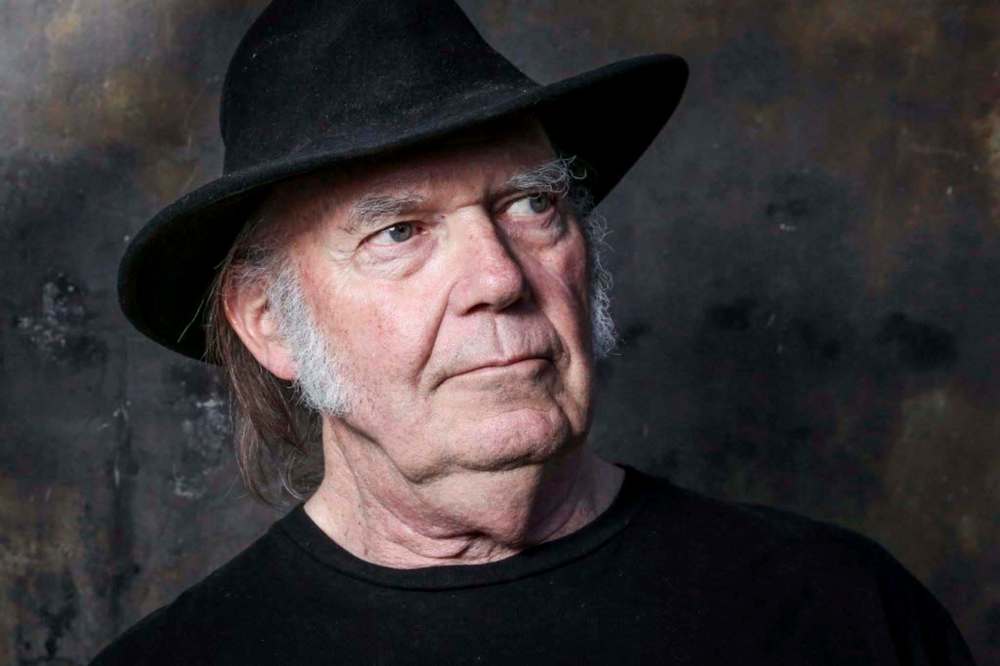
The Burt show is sold out, but there are a few dozen available for Monday’s show at the Centennial Concert Hall.
After an opening set by Peguis singer-songwriter William Prince — the 2017 Juno winner for contemporary roots album — Young will take the stage and will play classics from his acoustic career — classics such as Heart of Gold and Harvest Moon immediately come to mind — and then will be joined by Crazy Horse, which includes original members Billy Talbot and Ralph Molina, as well as Nils Lofgren, who played with the group in the 1970s before launching a solo career and then joining Bruce Springsteen and the E Street Band.
The last time Young appeared onstage in Winnipeg was at the concert hall in January 2014, for his Honor the Treaties Tour, which raised funds and awareness of First Nations in northern Alberta and their legal fight against oilsands development. In 2012, Young toured Canadian hockey arenas with Crazy Horse, including a November 2012 stop at the Bell MTS Place.
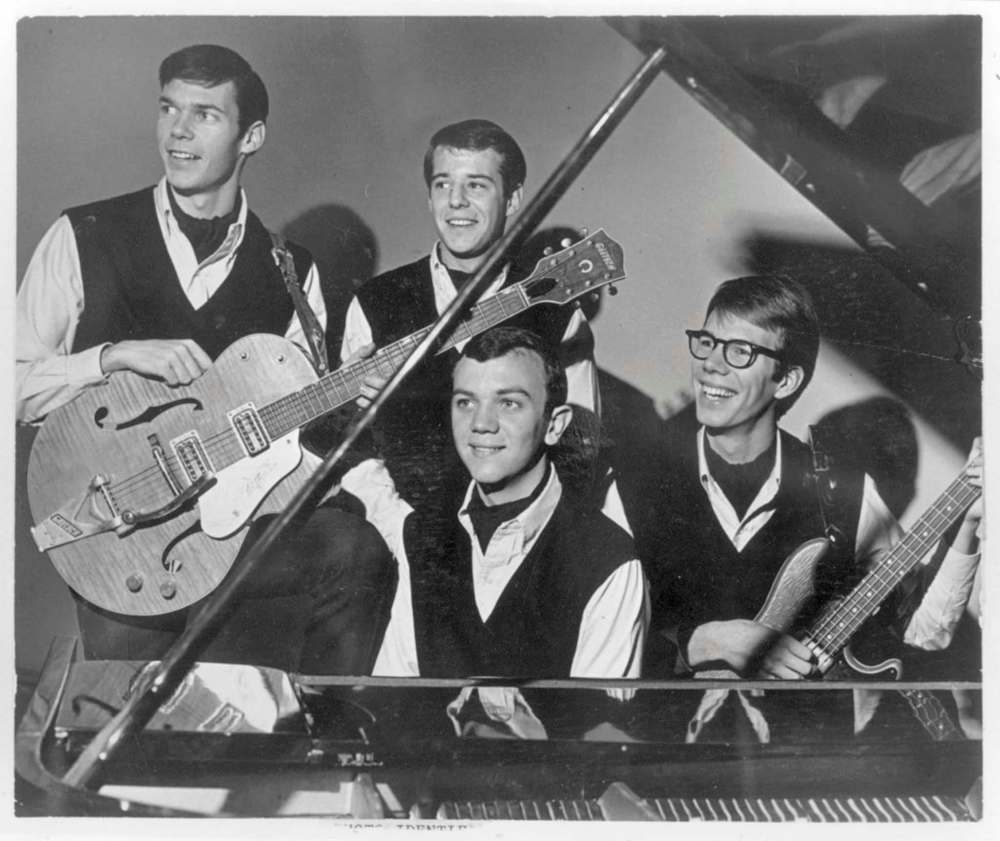
Trying to distil Young’s career into five songs, or even five albums, is a ridiculous pursuit. He’s taken his music on so many twists and turns that there are folkie fans who love his acoustic material but could live without Young cranking up his famous electric guitar, Old Black. Conversely, there are rockers who don’t need to hear Heart of Gold yet again.
So let’s separate Young’s career into five parts, and see how many you groove to:
Neil Young, the folksinger
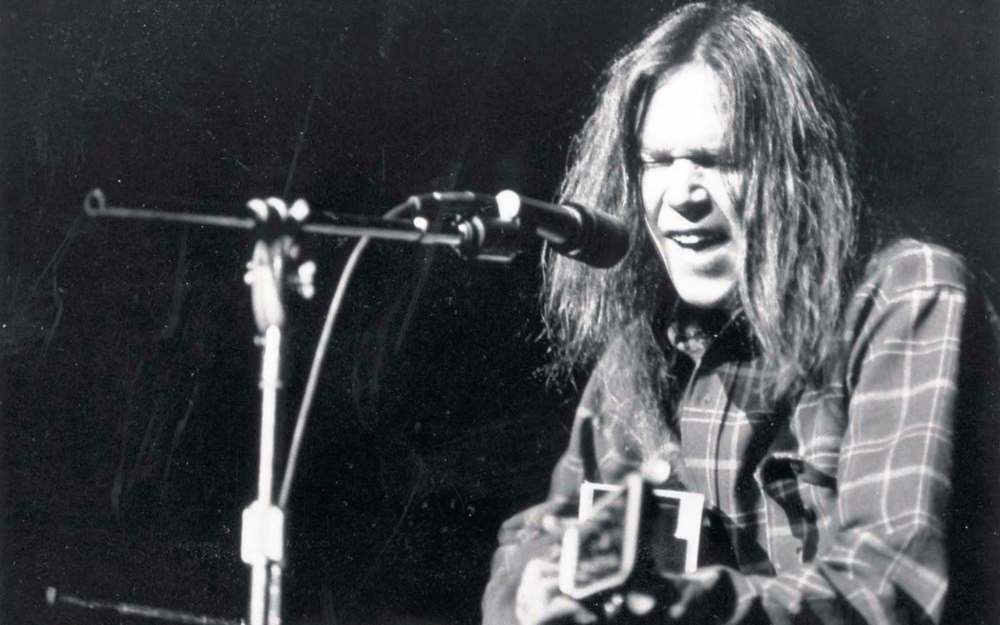
Heart of Gold or Old Man alone will get the 73-year-old Young gigs until he says enough already. There are dozens of other memorable tunes that visit his early days (Sugar Mountain, 1968), music history (From Hank to Hendrix, 1992); tragedy (The Needle and the Damage Done, 1972) or sad reminiscences (Long May You Run, 1976 and This Old Guitar, 2005).
Neil Young, the activist
The most famous of these songs is Ohio, which Young wrote shortly after four students were killed when the U.S. national guard fired on an anti-Vietnam War protest at Kent State University in 1970. Since then, Young has spoken out on countless issues, including collective bargaining (Union Man, 1980); blind patriotism (Rockin’ in the Free World, 1989); the war in Iraq (Living With War, 2006); farm chemicals (Monsanto Years, 2015); and even commercialism in music (This Note’s For You, 1988), which might be an appropriate tune to hear on Super Bowl Sunday.
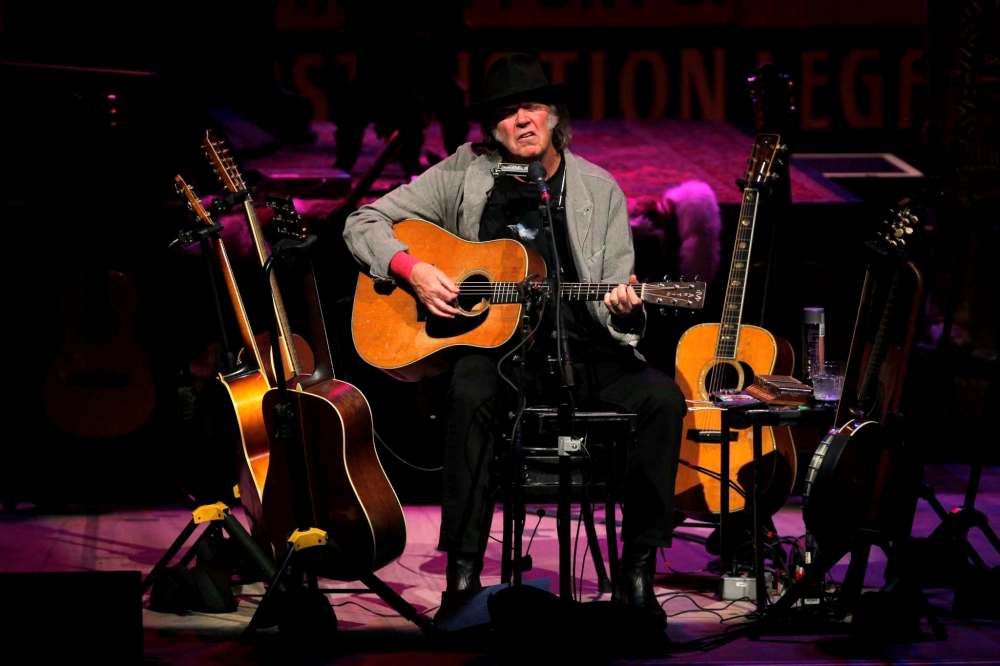
Neil Young rocking with Crazy Horse
Listeners usually focus on two huge albums to binge on Crazy Horse jam sessions: Everybody Knows This is Nowhere from 1969 and 1979’s Rust Never Sleeps, but that would overlook 14 other Crazy Horse albums including Zuma, which includes the 1975 anthem Cortez the Killer and the 1989 renaissance Ragged Glory, which has Mansion on the Hill.
Neil Young, the tinkerer
There are hobbyists, and then there is Neil Young, who enjoyed sharing his love of model trains with his sons so much he eventually created a group to buy Lionel, the toy railroad company, in 1995.
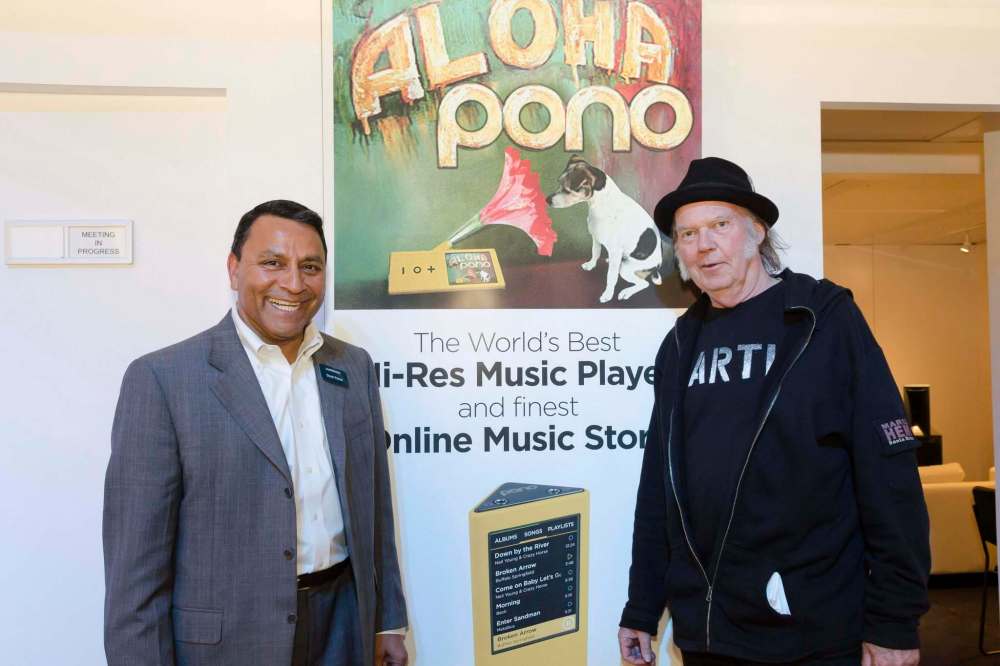
When digital music began taking over the industry, Young, who was upset with the poor quality of MP3 recordings, helped create the Pono player, which played music using larger digital files. He started the project in 2012, but by 2017, he halted production of any more players, despite having the product be well received by audiophiles.
Finally, Young merged his love of classic cars — the Squires famously rode from gig to gig in a 1948 hearse Young named Mort — with his beliefs in environmental activism, helping create the Lincvolt, a 1959 Lincoln Continental convertible with an hybrid-electric engine instead of a gas-guzzling V-8. Cruising in it inspired Young on a whole new album of driving tunes, 2009’s Fork in the Road.
Neil Young, the archivist
Young looked ahead during his career when he decided to record and store concert after concert while on tour. His fans are among the beneficiaries, whether it’s from awesome discs such as Live at Massey Hall 1971 — which has him playing Heart of Gold before anyone knew it was going to be a hit, and therefore has none of the usual dopey applause by the crowd after Young plays the first couple of notes — and Live at Fillmore East, a 1970 recording that is an awesome prep for Sunday and Monday’s Crazy Horse set. In all, Young’s archives have spawned five box sets and 12 concert CDs, and Young promises more.
Naturally, the archives also have a home on the web, neilyoungarchives.com, which is a one-shop stop for Rusties, and includes streams of Young’s music and concert ticket information.
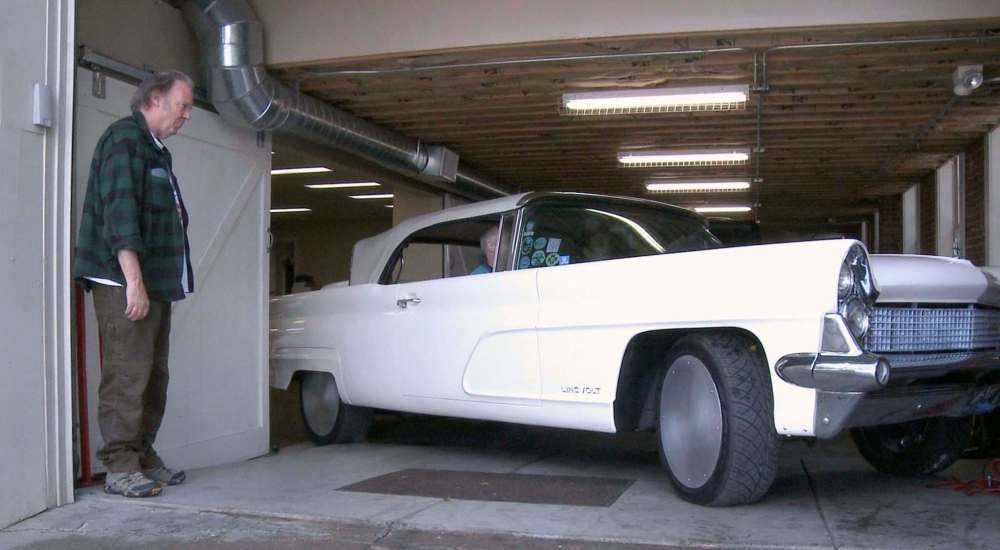
alan.small@freepress.mb.ca
Twitter: @AlanDSmall

Alan Small has been a journalist at the Free Press for more than 22 years in a variety of roles, the latest being a reporter in the Arts and Life section.
Our newsroom depends on a growing audience of readers to power our journalism. If you are not a paid reader, please consider becoming a subscriber.
Our newsroom depends on its audience of readers to power our journalism. Thank you for your support.

